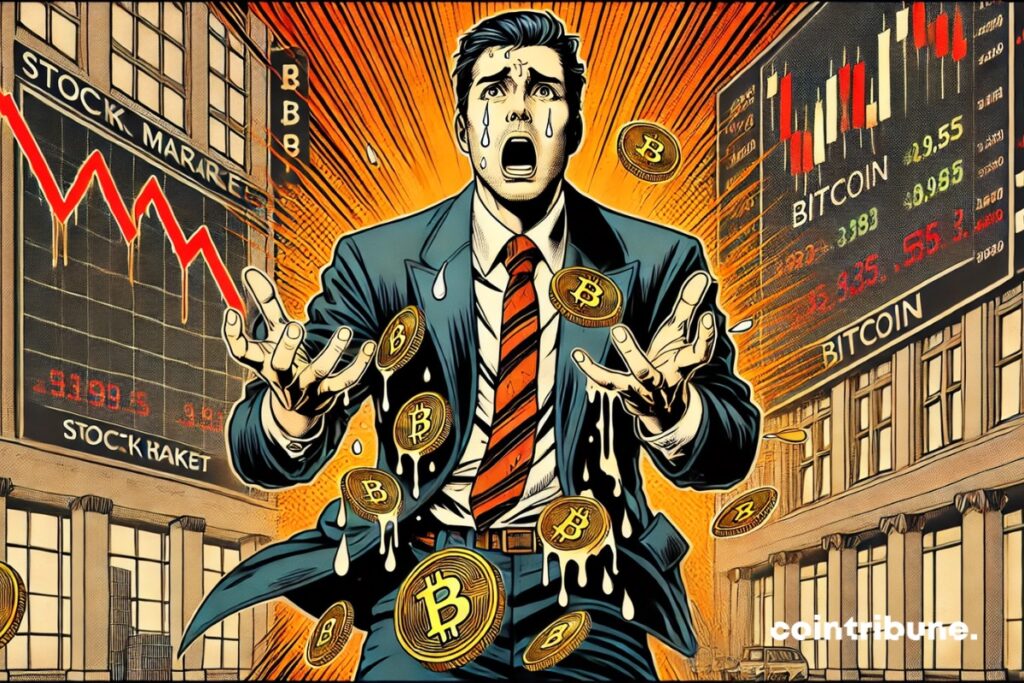Bank of Italy Sounds Alarm: Crypto ’Threatens Financial System’—Regulators Scramble
Another day, another central bank fretting about decentralized money. Italy’s financial watchdog joins the chorus of institutions warning that crypto could destabilize traditional markets—because nothing terrifies bureaucrats like innovation they can’t control.
The irony? These same regulators presided over the 2008 crash. Now they’re clutching pearls over Bitcoin while turning a blind eye to banks playing derivatives roulette with taxpayer money.
Here’s the truth they won’t admit: crypto doesn’t break systems—it exposes broken ones. The ’threat’ isn’t volatility; it’s transparency cutting through decades of financial oligarchy.

In Brief
- The Bank of Italy warns of systemic risks of cryptos in the traditional financial system.
- Crypto market capitalization has reached 2.75 trillion dollars, exacerbating global market vulnerabilities.
- Donald Trump’s pro-crypto policy has strengthened the appeal of cryptos, especially among large American companies.
- Despite concerns, some Italian banks, such as Intesa Sanpaolo, adopt crypto while remaining cautious.
Crypto: A Time Bomb for Global Financial Stability
The Bank of Italy highlights the systemic risks linked to crypto volatility, regulatory gaps, and the potential contagion of markets. The rise of cryptocurrencies, notably Bitcoin and stablecoins, has contributed to a market capitalization explosion of global digital assets, reaching 2.75 trillion dollars at the end of March 2025. However, the bank warns about the dangers of greater integration of cryptos into traditional financial systems.
One of the major concerns in this report is the growing influence of stablecoins, mainly those backed by the US dollar, such as USDT (Tether) and USDC (Circle). According to the Bank of Italy, these currencies could compromise the monetary sovereignty of the European Union and harm the stability of the Eurozone payment systems.
The Impact of Donald Trump’s Policy
The report published on April 28 also highlights the effects of Donald Trump’s pro-crypto administration policies. Since his election, the current US president has taken measures favorable to the crypto industry, including reducing investigations into sector companies and holding crypto events at the White House. These decisions have strengthened the appeal of digital assets, especially among large corporations, ETFs, and corporate treasuries.
Moreover, the concentration of crypto power in the hands of a few American companies is another source of concern. About 75% of total bitcoin capitalization is held by American companies, raising questions about governance and potential conflicts of interest in this still young sector.
BTCUSDT chart by TradingViewItaly Facing Crypto Challenges
Despite these concerns, some Italian banks, such as Intesa Sanpaolo, are engaging in the crypto universe. The bank recently purchased bitcoins and has been involved in developing blockchain bonds, demonstrating a willingness not to turn their back on the technology while remaining cautious about its financial value.
This report from the Bank of Italy thus highlights the global challenges of the crypto market, where technological innovation and financial risks coexist. While the bank insists on the dangers of cryptocurrency integration, especially questioning bitcoin’s legitimacy, it also acknowledges their progress. Cautious Italy adapts to developments while monitoring their global implications.
Maximize your Cointribune experience with our "Read to Earn" program! For every article you read, earn points and access exclusive rewards. Sign up now and start earning benefits.

